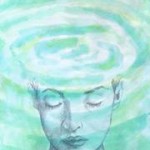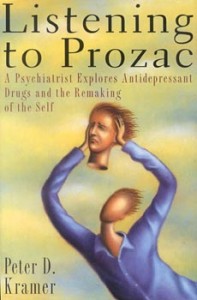When it comes to depression treatment, setbacks can occur – even if you’re following your treatment plan. These strategies can help you get through them. Read the Blog
5 Ways to Get Through a Depression Setback
Batten Down the Hatches: Surviving a Depression Hurricane
I’ve always been fascinated by all sorts of weather calamities. But none holds my attention more than a hurricane. Though I’ve never been in one, I marvel at their power and size; spinning vortexes of blistering wind manipulated into different colors on The Weather Channel’s satellite video.
Many who are struck by major depression feel like they’re in a hurricane. They may have sailed in navigable waters much of their lives (the average age of onset of major depression is about 40). But then the skies darken. And the large swells begin. The winds go from buffeting to battering their ships of their lives. A type of emotional and neurochemical hurricane goes on in their brains and pulls apart their sense of self and neural connections needed to run their lives.
Just like a hurricane, major depression doesn’t last forever. It dissipates. The seas eventually calm. People come out of their of their deep troughs of sorrow. The average length of depression is about six months – sometimes shorter, sometimes longer.
The speed at which one recovers may be accelerated by treatment: especially medication and talk therapy. However, many people do not get help when they really need it. They don’t call the coast guard when they’re in trouble. They ignore the warnings, either dismissing it as “the blues” or maybe drinking too much or drugging themselves to blot out the pain.
To have a good shot at long-term recovery, it’s critical to not only get help but to recognize that this ongoing assistance will be part of a new way of life. The afflicted to develop and be persistent about self-care habits that go a long way to warding off future depressives episodes. Avoiding future outbreaks of depression is critical. And this is because mental health care experts know that the more depressions you have, the likelihood you’ll have ones in the future goes up dramatically. It is also usually highly recurrent, with at least 50% of those who recover from the first episode of depression having one or more additional episodes in their lifetime, and approximately 80% of those with a history of two episodes having another recurrence.
One of the best ways to get out of the eye of depression’s storm is a support group. They combat the stigma and loneliness that wrap around the bones of a depressed person. In such support, sufferers find a kinship. As Ernest Hemmingway once wrote, “He knew too what it was to live through a hurricane with the other people of the island and the bond that the hurricane made between all people who had been through it.” The bottom-line is that there’s strength in numbers. Check out the Depression and Bipolar Support Alliance’s website to find a support group near you.
So don’t get caught in the hurricane of depression. Get help. And once you recover, develop a strategy that you can and do stick with to stay well.
No Magic Cure-all For Depression
From The Tampa Tribune, psychologist, Ann Rosen Spector, writes, “There is no happy pill. Prozac was never a cure-all. Way too many doctors, pharmaceutical companies and health-insurance entities would rather you take medicine then go repeatedly to a qualified psychotherapist. Read the News
Talk Therapy Plus Meds Best For Severe Depression
A combination of therapy and antidepressants appears to best help people with severe, but short-term depression, a new study reports. Read the News
Christianity Can’t Replace My Zoloft
From Time Magazine, Brandan Robertson writes, “The fact that my depression and anxiety didn’t go away when Jesus “came into my heart” and the reality that I had to be medicated to live a normal life made me feel like a second-class Christian.” Read the Article
The Dark Side of Antidepressants
As I’ve intimated, drug industry research on the newer antidepressants has been manipulated to maximize positive results and minimize the downside. Here’s one example: the original research that got FDA approval and set off the craze for these drugs had very low standards, which were not revealed to the public.
They were generally two- or three-month trials, very short over the lifetime course of depression, and the definition of cure was simply no longer meeting all the criteria for major depression. You might still be feeling suicidal and wracked with guilt, but if your sleeping had improved, as far as the FDA was concerned, the drug had demonstrated its effectiveness. Then there was the fact that in all these trials the drugs proved only slightly better than placebo—in most cases, about 40 percent of people got better with a sugar pill, and about 50-60 percent improved with an SSRI. Added to that is the fact that many of these studies stacked the deck by excluding people who were most responsive to placebo.
Subsequent studies, with larger groups over longer periods of time, have shown about the same disappointing results. The STAR*D study, with a large sample of real-world patients, without excluding placebo responders, found that about 50 percent of patients had a significant response to medication, but only about 30 percent met the researchers’ definition of remission. During follow-up, a significant number of patients relapsed. Overall, the recovery rate was only slightly better than chance alone. STAR*D was sponsored by the National Institute of Mental Health and should be considered relatively free of drug company influence.
The withdrawal problems with SSRIs have also been minimized. There can be significant withdrawal problems when you stop taking SSRIs—“SSRI Withdrawal Syndrome”—including extreme anxiety, skin crawling, confusion, GI distress, insomnia, and agitation. For some individuals these symptoms are excruciating. I had a patient who went through weeks of pure hell—fever, nausea, chills, extreme depression, and the certainty she was losing her mind—going off a pill I had encouraged her to take. The best advice is to discontinue any of these medications by tapering off slowly and under a physician’s care.
Last but not least, there are worries that antidepressants interfere with emotional vitality. One study of non-depressed volunteers found that taking an SSRI for only a week interfered with their ability to read facial expressions, especially of anger and fear. Another study of normal volunteers found that four weeks of Paxil significantly reduced their ability to feel sad or angry when appropriate. A group of patients who were experiencing sexual side effects also developed significantly less ability to cry or care about others’ feelings. They also lost erotic dreaming, surprise, creativity, anger, and ability to express their feelings.
Therapists who take SSRIs themselves were very disturbed by these findings, wondering if it meant they were losing their ability to be empathic; many of us have stopped medications as a result. I know a musician who tried Lexapro for his social anxiety and asthma. He noticed that he stopped getting chills and goose bumps when he was really moved by music. When he stopped Lexapro, he was able to get goose bumps again. He felt that he had also lost some of his ability to immerse himself in the music. Another male patient, who was prone to picking up girls for one-night stands, reported that with Paxil he stopped feeling guilty. At least he recognized this was a problem.
It seems quite possible that SSRIs (and other antidepressants, for all I know) get some of their effect from an overall emotional blunting, especially of negative feelings. Their use may make us temporarily a little shallow or insensitive. As far back as Listening to Prozac (1993), Peter Kramer was advancing the theory that people with depression may be especially sensitive to signs of rejection, and that SSRIs helped them cope better. This is one of the reasons why I’m so against the use of antidepressants by people without severe depression who simply want to feel better. They may worry less, but it can damage their relationships, reduce their enthusiasm, make them more shallow and unrealistically complacent. This may be why, in this age of stress, so many people are using antidepressants—the drugs can help people put up with things they should not put up with.
Bottom line on SSRIs? Depression is a serious illness, and these are serious medications. No one should ever take them lightly. They definitely can do harm, but the harm depression can do can be much worse. If you have a severe depression, you owe it to yourself to give medication a genuine try. But it needs to be part of a balanced plan that includes good psychotherapy and a lot of self-care. One thing medication can do is let you have the energy or hope to follow through.
By Richard O’Connor, Ph.D.
Dr. O’Connor is the author of the best-selling books, Undoing Depression and Undoing Perpectual Stress: The Missing Connection Between Anxiety, Depression and 21st Century illness.
A Lawyer’s Tale: Recovery From Depression
In this personal account, Keith Anderson describes his struggles with depression and how he has, again, found meaning and happiness in life. Read the News
New Study From Harvard Finds That Weight Gain With Antidepressants Is Small
Although some pills for depression can spur weight gain, a new study finds the long-term amount to be small. Read the News
New Blood, Urine Tests Find 5 Distinct Types of Depression
A researcher says he has identified multiple types of depression, including three that don’t involve serotonin. Read the News
Anti-Depressants or Picking Blueberries for Better Health?
Just how related is depression to other health maladies such as heart disease and are anti-depressants really the solution? Read the Blog
Built by Staple Creative













